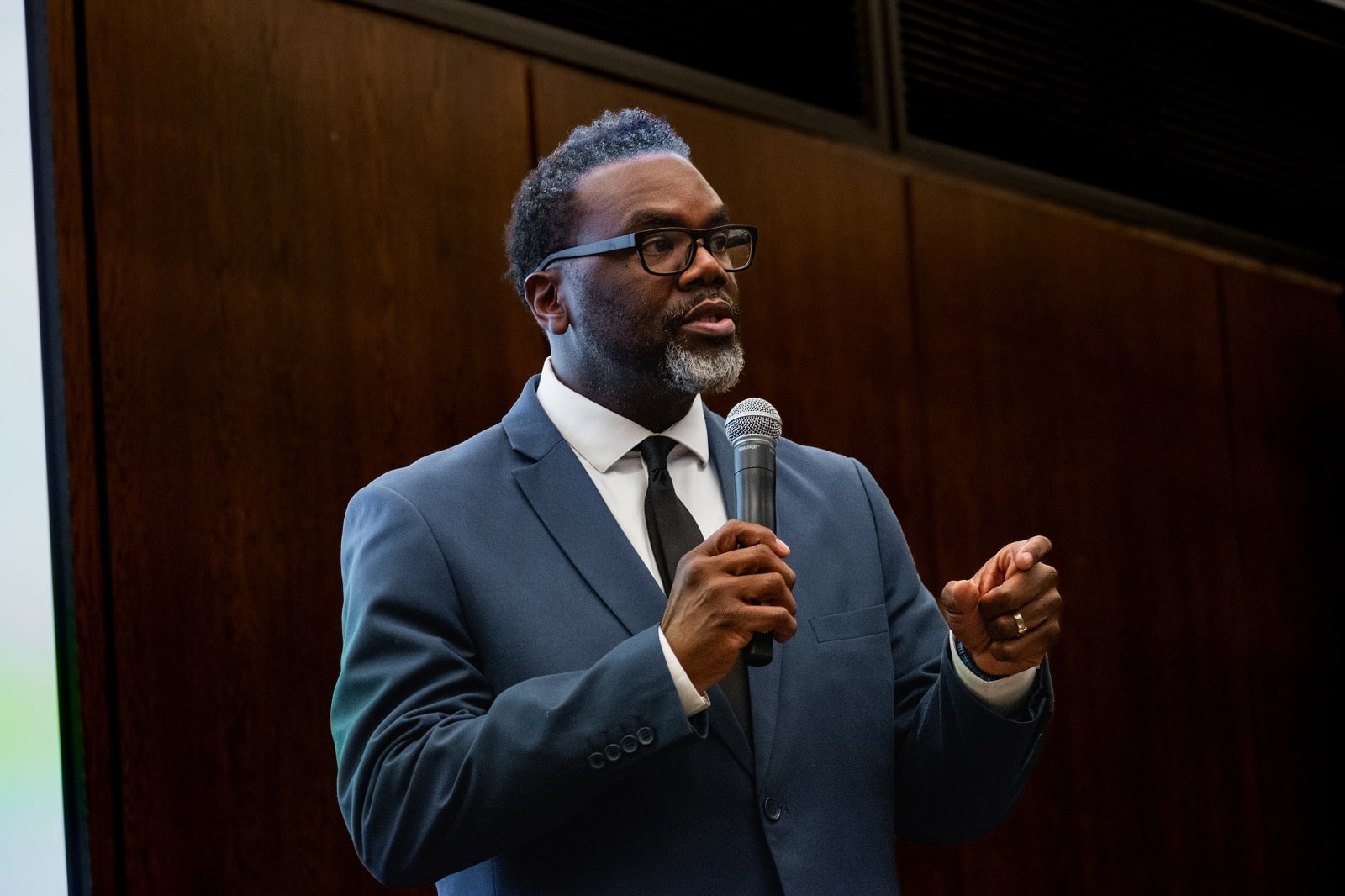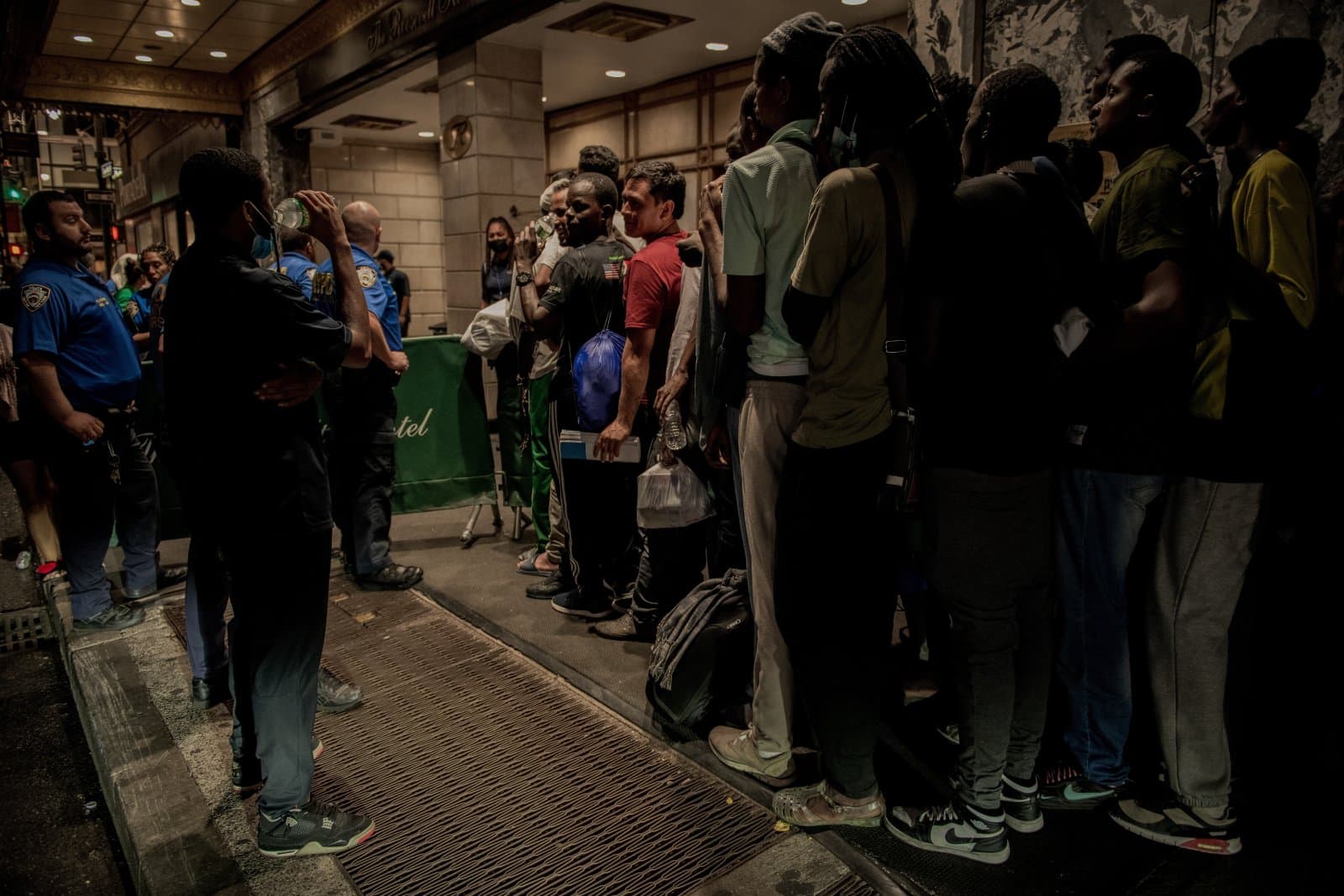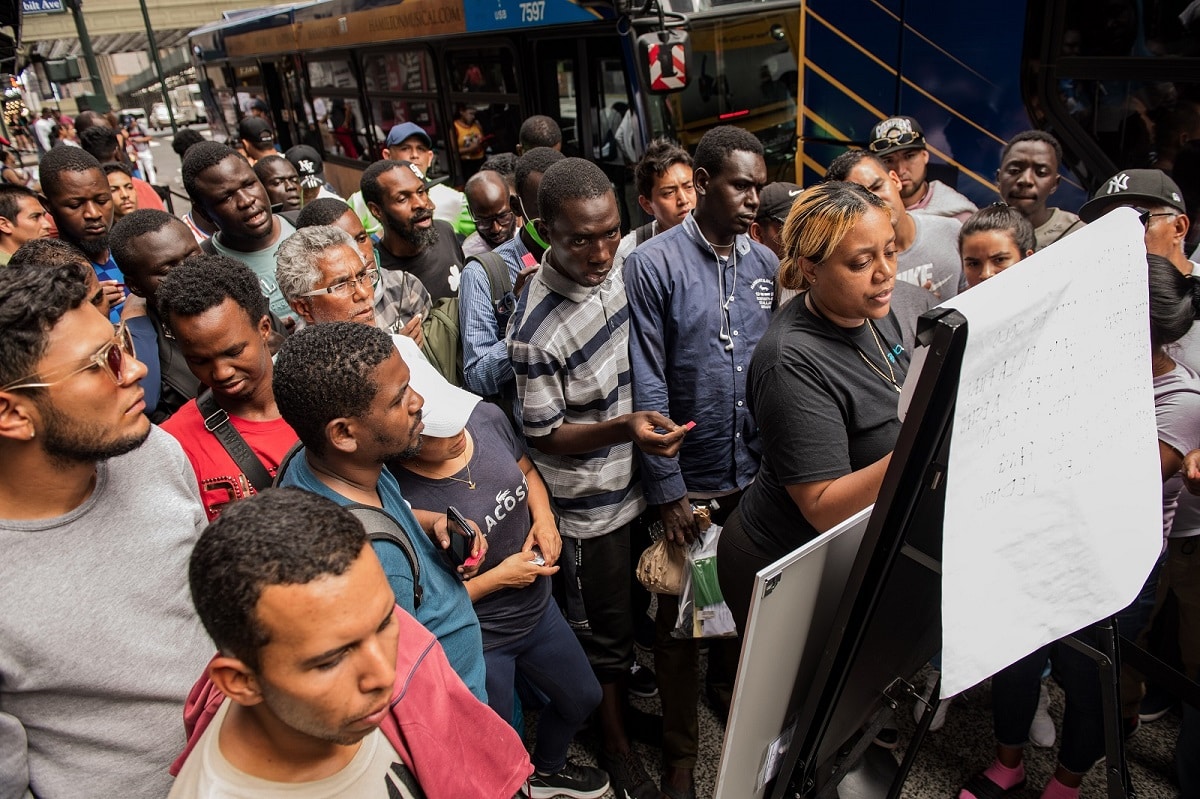The recent wave of asylum seekers and migrants at the southern U.S. border is really starting to pinch the budgets of some of the biggest cities in the U.S., like New York City, Chicago, and Denver. These cities are seeing their spending increase to help out migrants, and they are calling for more help from state and federal governments to keep their budgets from getting too stretched.
Budget Woes Spotlighted by S&P

S&P Global Ratings has shed light on how New York City, Chicago, and Denver are feeling the heat with the extra costs of supporting migrants.
According to S&P, without a helping hand from the state and federal levels, these cities might see their financial health take a hit.
New York City’s Soaring Costs

In New York City, where the number of migrants has jumped, the city forked out $1.45 billion last year just on migrant-related expenses.
Looking ahead, they’re bracing for this figure to leap to $9.1 billion over the next couple of years.
Chicago’s Funding Shuffle

Over in Chicago, the city spent $275 million on services for migrants last year but has dialed back this year’s budget to $150 million for housing and support.
This cutback happens as the need for services is still on the rise, signaling some tough choices ahead.
Denver Feels the Squeeze

Denver is also feeling the budget crunch, having spent around $46 million on migrant services last fiscal year.
They have already spotted some big cost overruns that could dig into the city’s pocket even more.
A Call for More Aid

The mayors of these cities are asking for more support from their states and the Biden administration.
Without assistance, the financial strain on city budgets could negatively affect their credit quality.
Unexpected Financial Headaches

The move by states like Texas to send migrants to other cities has thrown a wrench in the financial planning of these destinations.
It has introduced unexpected financial challenges. This situation has led to calls for a more coordinated response to the migrant crisis.
Backlog in Immigration Courts

A big part of the problem is the massive backlog in immigration courts, now at 3 million pending cases. This logjam is making it even harder for cities to manage the costs of supporting migrants.
State and Local Efforts

States like New York, Illinois, and Colorado are pitching in with extra support for their cities, but the federal response has not been as strong as many hoped.
This gap in support is putting a spotlight on the need for more action from the top.
Financial Strain on Cities

The financial toll of the migrant surge on cities is clear, with potential cuts to other services looming if solutions are not found.
It’s a tightrope walk between helping out migrants and keeping city finances healthy. The situation demands immediate attention to prevent long-term fiscal instability.
Public Services Under Pressure

The increase in migrants not only strains budgets but also puts pressure on public services, including housing, healthcare, and education. Cities are struggling to meet these increased demands with limited resources.
The Hunt for Solutions

There is a growing call for a united effort from all levels of government to tackle this crisis head-on. It is not just about throwing money at the problem, it is also about finding lasting solutions to the challenges driving migration.
Community Services at Risk

The ripple effects of the budget strain could hit community services hard, affecting not just migrants but everyone in the city. Cities are faced with difficult decisions about how to allocate their constrained resources.
Worrying Future Costs

With no sign of the migrant numbers slowing down, cities are obviously concerned about how they will cover the rising costs. Projections of escalating expenses underscore the urgent need for additional funding and support.
A Push for Federal Action

This situation really highlights the need for some leadership from the federal government. A coordinated approach could go a long way in making sure cities are not left to handle this huge financial burden on their own.
Looking for Long-Term Fixes

Ultimately, cities require sustainable strategies to manage the fiscal impact of supporting migrants. This includes not only addressing immediate financial pressures but also working towards long-term solutions that address the root causes of migration.
The post Migrant Support Strains NYC, Chicago, and Denver Budgets – Residents Demand Answers first appeared on Swift Feed.
Featured Image Credit: Shutterstock / Vic Hinterlang.

